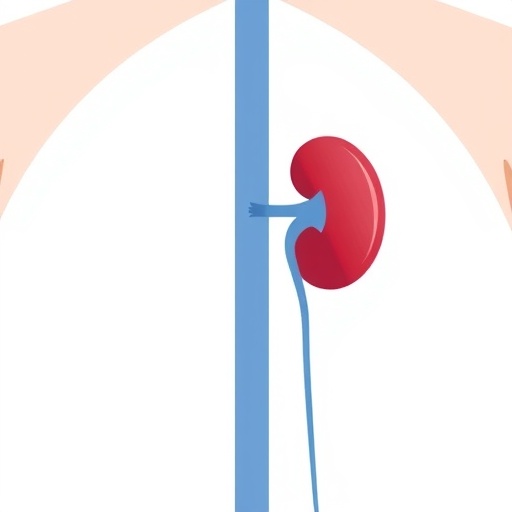In recent years, the field of transplantation medicine has witnessed significant advancements, but challenges remain, particularly concerning the access and outcomes for patients pursuing multiple organ transplants. One particularly pressing issue is the risk of allosensitization in islet recipients, as highlighted by Czarnecka and Shapiro in their insightful study published in the Current Transplant Reports. Their research sheds light on the implications of allosensitization, a condition characterized by the development of antibodies against donor antigens, in patients who have received islet transplants and the subsequent effects this has on renal transplantation eligibility and success.
Islet transplantation is a complex but life-altering procedure for patients with Type 1 diabetes who struggle to maintain glycemic control. It provides an opportunity for these patients to regain some function of insulin production, which is critical for managing blood glucose levels. However, as many medical practitioners will acknowledge, the road to successful islet transplantation is fraught with challenges. One of the most formidable hurdles is the development of alloantibodies post-transplantation, which can drastically limit the options available for future organ transplant procedures.
When a patient undergoes islet transplantation, they may unintentionally become sensitized to the donor’s human leukocyte antigens (HLA). The immune response triggered results in allosensitization, which raises the stakes significantly for any subsequent organ transplants, such as kidneys. As the study by Czarnecka and Shapiro elucidates, the presence of these alloantibodies can lead to a higher degree of difficulty in finding suitable donor matches for kidney transplants, subsequently raising the risks associated with organ rejection.
The study’s findings are crucial because they indicate an urgent need for comprehensive strategies that can be implemented prior to, during, and after islet transplantation to effectively mitigate the risk of allosensitization. Czarnecka and Shapiro recommend the use of more aggressive immunosuppressive protocols post-islet transplantation to lessen the likelihood of antibody formation. Utilizing such preventive measures could help maintain the patient’s eligibility for future renal transplants.
The ramifications of allosensitization are severe. Patients who are highly sensitized may be relegated to long waiting periods for kidney organs or find themselves having to copious amounts of immunosuppressive drugs, which can bear their own set of complications. This situation leads to an unpredictable future in terms of health management for these patients. Consequently, understanding the underlying mechanisms of allosensitization could pave the way for new, targeted therapies that can de-sensitize patients, thereby improving their future transplant prospects.
As the body of evidence accumulates around the risks associated with allosensitization, it will be vital for physicians and transplantation teams to educate their patients thoroughly. Knowledge about potential risks and the implications of receiving an islet transplant must be disseminated effectively among patients who are candidates for this intervention. Comprehensive patient education can lead to informed decision-making about their medical care.
The findings of this important study underscore a broader concern within the realm of organ transplantation. Increasing rates of diabetes, combined with a growing number of patients with renal failure seeking transplantation, require a reevaluation of current protocols and approaches to ensure equitable access and improved outcomes. This goal necessitates interdisciplinary collaboration among transplant surgeons, immunologists, and endocrinologists to build holistic, patient-centered treatment frameworks.
Emerging technologies in the field of immunology, such as the development of targeted antibody therapies and advancements in HLA typing technologies, represent promising avenues to mitigate risks associated with allosensitization. These innovations can enhance the precision of transplant matching and may also pave the way for less invasive and more effective ways to manage sensitization.
Consequently, relying on traditional methods of assessment that do not take into account evolving immunological landscapes could lead to missed opportunities for patient care improvements. Personalized medicine approaches, which consider individual patient’s immune profiles and responses, could revolutionize how transplant recipients are prepared and monitored throughout their treatment pathways.
Furthermore, as the transplantation landscape evolves with innovative practices and technologies, it will be essential to unify these strategies under more coherent guidelines that prioritize both efficacy and patient safety. Establishing uniform standards for the evaluation of sensitization risk could also facilitate data collection and sharing among transplantation centers, leading to improved outcomes through collective learning and practice enhancement.
While the journey of organ transplantation is rife with challenges and complexities, the urgent call to address allosensitization risk among islet recipients is critical. Czarnecka and Shapiro’s work brings to the forefront critical insights that can impact policy, clinical practices, and ultimately, patient outcomes in transplantation medicine.
As we look toward the future, an emphasis on collaboration across the medical and research communities will be crucial. The synthesis of knowledge gained from diverse areas of expertise, including immunology, transplant surgery, and patient management, will be essential as we strive to overcome the allosensitization barrier. It is through these combined efforts that we can enhance the prospects for islet and renal transplantation, offering new hope for patients whose lives depend on these intricate and vital medical procedures.
The landscape of transplantation may be transforming, but with concerted effort from all stakeholders involved in patient care, the possibility of a future where patients can achieve long-term success post-islet transplant while maintaining access to renal solutions is attainable.
Subject of Research: Allosensitization in Islet Recipients and Impact on Renal Transplant Access
Article Title: Risk of Allosensitization for Islet Recipients and Impact on Access To Renal Transplant
Article References:
Czarnecka, Z., Shapiro, A.M.J. Risk of Allosensitization for Islet Recipients and Impact on Access To Renal Transplant.
Curr Transpl Rep 12, 28 (2025). https://doi.org/10.1007/s40472-025-00484-6
Image Credits: AI Generated
DOI: 10.1007/s40472-025-00484-6
Keywords: Allosensitization, Islet transplantation, Renal transplantation, Immunosuppression, Organ transplantation challenges.




